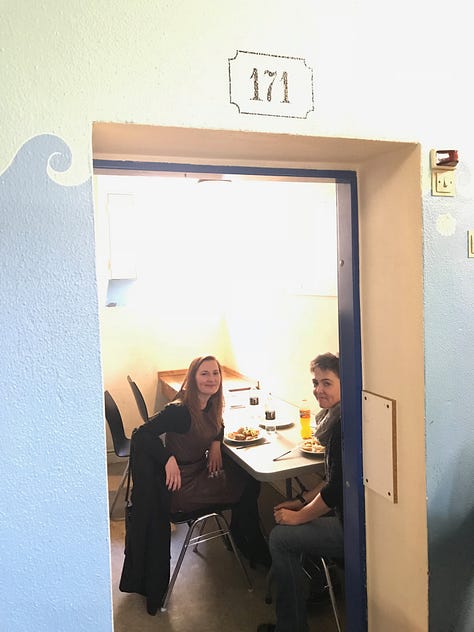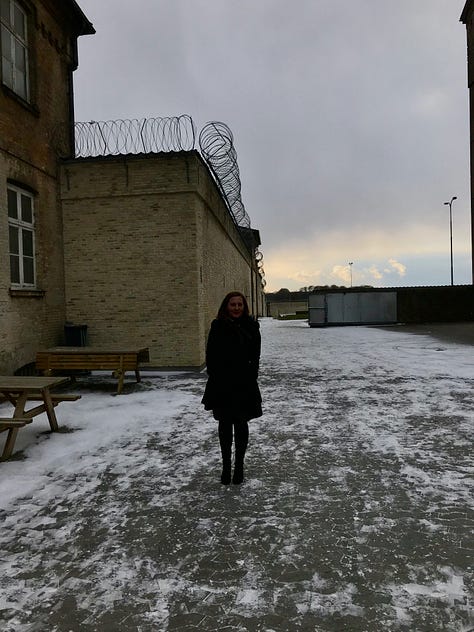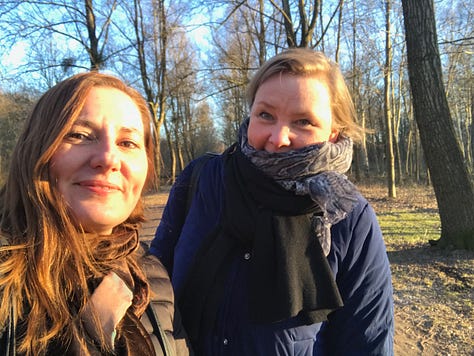Getting Lost with Annie Ernaux
a Nobel Prize winning writer's journal of a feverish year
A confession, dear reader: I read most books with a pen in hand, underlining and making notes in the margins. I make an exception for signed hardcovers, for which I use a pencil instead of a pen. Because of this underlining and marginalia habit, I prefer to read paperbacks; somehow defacing a paperback feels less uncouth than defacing a signed hardcover.
Once a month, I’ll be sharing things I’ve underlined in one or two of the books I’ve read, along with commentary. I hope you’ll enjoy these notes from Getting Lost by Annie Ernaux, winner of the Nobel Prize for Literature.
Getting Lost, Annie Erneaux
A journal of the author’s affair with a Russian diplomat in France in 1989, this book is filled with obsession and self-loathing. One of the issues Erneux takes with herself is her complete abandonment of writing during the year of the affair. Ultimately, she gets this book out of it, so in the end it worked out for her, but not without a lot of emotional and intellectual pain:
A sense of my own mediocrity, a general lack of courage particularly when it comes to writing.
Is there any writer in the world who has not spent a good deal of their time feeling this way? You have this idea, starting out, of the books you will write, and no matter where life takes you, you will always feel that you have not quite accomplished what you set out to. When Ernaux wrote this journal, she had not yet won the Nobel Prize for Literature, but she was already a celebrated writer in France. One of the recurring themes of the book, in fact, is that the diplomat is attracted to her for her literary fame; she fears that if she did not possess that stature, he would not be interested in her.
Ernaux on Seizing Life
As much doom and gloom as there is in the book, there is also energy and optimism, particularly in the early months of the affair:
The only thing that matters to me is to seize life and time, understand, and take pleasure.
She takes pleasure all right! Much of this book is about pleasure. By leaving out most of the details, however, and focusing instead on the desire, anticipation, and obsession, Ernaux offers a master class in writing about desire without writing explicitly about the act itself.
Ernaux on Writing
Throughout the book, Ernaux muses on the act of writing, in particular the writing of the journal:
This journal should have two columns, one for immediate writing, the other for interpretation a few weeks later. That would be a wide column because I could write several interpretations.
As someone who keeps notebooks but doesn’t journal per se, I appreciate this. When I’m going back to my notebooks to transcribe them onto my computer—which I’ve been doing for the past few months for The Wandering Writer—I often make additions and footnotes as I transcribe. In this way, the thing that makes it onto the typed page is a conversation between the person who wrote the notebook, months or years ago, and the person transcribing it—the same person, of course, but with the perspective of time and distance. By the time I publish a notebook entry, it covers at least two times and places, sometimes more. The interpretation lives alongside the original notebook entry.
One of the most beguiling aspects of Getting Lost is the immediacy she mentions here. Of course, she is a writer, so no doubt she revised carefully before sending this journal out into the world as a book. Yet she was able to maintain that sense of immediacy, the sense that we are reading the thoughts and feelings she had at a particular moment in time, exactly as she wrote them down. In truth, of course, all writing is artifice—whether revised or not. We revise the story as we put it down on the page, we cannot help but filter it and treat the self as a character once or twice removed. Ernaux, who seems fully aware throughout the writing of the journal that a book will come out of this affair, no doubt keeps the reader at a distance in some sense without making us feel that we are at a distance.
Ernaux on Denmark (sort of)
While the book is primarily set in Cergy, in the northwestern suburbs of Paris, Ernaux travels here and there for literary events. At one point, she goes to Copenhagen.
Yesterday, visited Horsens and Jelling, the graves of the first kings of Denmark.
Although it’s merely an aside for Ernaux, visiting Denmark was the most fun I’ve ever had on book tour. Klim, my Danish publisher for The Marriage Pact (as Til døden os skiller) brought me to Copenhagen for several days in March of 2018. At one point we went to Horsens for the Horsens Crime Book Festival, which is held in an old prison that is now a cultural events space. I had brought a little black coat that served me well in San Francisco but was no match for a Danish spring. (It turns out spring in Denmark is even colder than summer in San Francisco). The team at Klim was so much fun, I just have to write something else to get invited back! (any ideas?)



Ernaux on aging
But back to Ernaux: In addition to being about obsession, desire, and writing, the book is also very much about aging. The author is 49 at the time of the affair and fears that she will not be desired again in the way that S (the diplomat) desires her. Some of the rawest, most painful writing in the book involves her vacillation between confidence and insecurity, her sense that she is on the cusp of a kind of annihilation of a central element of self. Throughout the book, she compares the current affair with two previous love affairs, spaced decades apart, and in so doing offers glimpse of the staggering continuity of a life. It is age and perspective that gives Getting Lost its raw power. As a reader, I would be interested to know what Ernaux, now 82, thinks of that 49-year-old self.
At any rate, I suspect that winning the Nobel Prize freed her of the notion of mediocrity.
On February 4th, just 30 pages into Getting Lost, Ernaux writes
A new notebook. Wishes…to write (as I yearn to do) a bigger, more sweeping book, starting at the beginning of ‘89…
That, she has done.
Get the book, Getting Lost, at Bookshop.org or Amazon.
Wishing you and yours very happy holidays. May it be a season of love and reading…
Michelle Richmond
Thank you for reading! A note on this newsletter: if you are receiving this newsletter in your inbox, you subscribed at some point on my author website. The newsletter has recently moved to Substack, where I post a new audio story exclusively for subscribers once a month, along with occasional notes on reading.



I love how you weave your own memories in with Annie Ernaux's -- and it's so heartening too to read that she too has had self-doubts. You must be right, that all writers do! The trick for me is to figure out how to write anyway!!